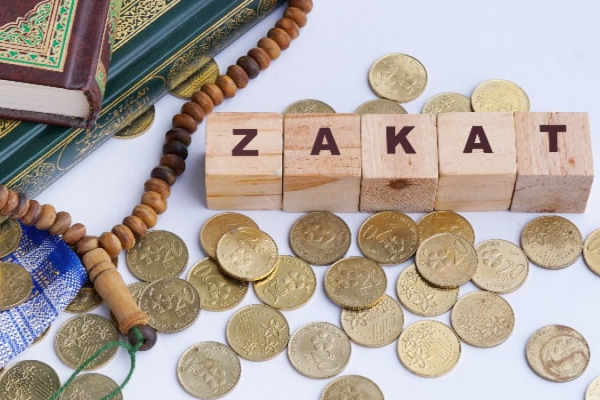Transferring inheritance rights
Question: Can the right to inheriting a property be sold to another inheritor or to a third party?
Answer
بسم الله الرحمن الرحیم
Inheritance is the transfer of ownership of the estate which transfers from the deceased to the surviving relatives at the point of death; it is not a ‘right to a claim’. This being the case, prior to death there is no inheritance which can be transferred, sold, or gifted. Rather, even the relinquishing of inheritance shares during the lifetime of the person inherited from is disregarded. Such decisions can be made only after the death of the person from whom the survivors will inherit.[1]
After the death of the family member, the related survivors become the shared owners of the estate of the deceased. Everything that the deceased owned will now become jointly owned by the inheritors in proportion of their inheritance shares as directed by sharīʿah. This includes cash, property, vehicles, investments etc. At this point, it is permissible for the inherited shares of the estate to be sold or transferred. Hence, it is not the right to inheritance that can be transferred; rather, it is the shares in the properties etc. that can be transferred.
When several individuals inherit one or more properties, some of the inheritors may want to sell or transfer their share of the estate. This could be for various reasons such as wanting to be the sole owner of one of the properties, or it could also be based on requiring the proceeds from a sale. An example of the former is if the deceased owned property in Australia, and one of the inheritors was also living in Australia, this inheritor may want to become the sole owner of that property. Likewise, one of the inheritors may be in need of finances; however, selling the entire property may not be possible due to logistical or legal reasons and therefore, one inheritor may want to sell at least their share of the property to acquire the finances required.
The former can be done in two ways.
(a) Zayd makes an agreement with all of the inheritors, or some of them, to take full ownership of the property in Australia in lieu of relinquishing his right in everything else. In this scenario, Zayd will become the sole owner of that property and will not have a share in any other part of the estate. While calculating the estate and the shares, the property in Australia will not be included in the entire estate. Likewise, Zayd will not be considered an inheritor for the remainder of the estate and therefore will not be included in the equation. The shares of Zayd will be distributed between those inheritors with whom an agreement was made in proportion to their share of inheritance.
(b) Zayd makes an agreement with all of the inheritors, or some of them, to buy out their shares of the property at a price agreed between themselves. In this scenario, Zayd will become the sole owner of that property in Australia. and will also have his share in all other parts of the estate.[2]
Likewise, one of the inheritors may be in need of immediate cash in which case he or she may choose to sell his/her share to one of the inheritors or to a third party.[3]
In conclusion, transferring shares of inheritance through a gift or sale, with their respective peculiar conditions, is permissible. However, the sale of the right to inherit prior to the death of the relative is not permissible.
And Allah knows best
Ibrāhīm ibn Muḥammad
Checked and approved by Muftī Ṭāhir Wādī
[1] قال السرخسي: وعن إبراهيم في الرجل يستأذن ورثته في الوصية فيأذنون له، ثم يرجعون بعد موته، قال لهم ذلك إن شاءوا رجعوا وبه نأخذ، فإن الإجازة من الورثة معتبرة في الوصية بما زاد على الثلث أو في الوصية للوارث، وإنما تعتبر إجازتهم بعد موت الموصي، فأما في حياته فلا تعتبر لأن الإجازة إما أن تكون بمنزلة التمليك منهم أو بمنزلة إسقاط الحق، وإنما ثبت ذلك كله لهم بعد موت الموصي فتمليكهم قبل أن يملكوا أو إسقاطهم لحقهم قبل أن يتقرر وجوب الحق لهم يكون لغوا (المبسوط: 27/147)
وقال أيضًا: وفقه هذا أن حق الوارث إنما يثبت في ماله بالموت ولكن سبب موته المرض فلما أقيم هذا السبب مقام حقيقة الموت في منع المورث من التصرف المبطل لحق الوارث فكذلك قام مقامه في صحة إسقاط الحق من الوارث بالإجازة ولكنا نقول إسقاط الحق قبل وجود السبب لا يجوز ويعتبر المرض بسبب تعلق حقه بمال بل السبب مرض الموت ومرض الموت ما يتصل به الموت فقبل اتصال الموت لا يكون سببا، وهذا الاتصال موهوم فيكون هذا إسقاط الحق قبل تقرر السبب (المبسوط: 27/154)
وقال العثماني: ولا يجوز لوارث أن يبيع حق إرثه إلى رجل آخر، بحيث يرث هو عوضا عن الوارث الحقيقي. لأن هذه لحقوق إنما أثبتها الشارع لرجل مخصوص بصفة مخصوصة… وبعبارة أخرى، إن هذه الحقوق لا تقبل الانتقال من واحد إلى آخر شرعا، فلا تباع ولا توهب، ولا تورث (بيع الحقوق المجردة: 78)
وقال أيضًا: وذلك مثل حق الوراثة في حياة المورث، لا يجوز التنازل عنه بمال، لأن حق الوراثة في حياة المورث ليس حقا ثابتا، بل هو حق متوقع يحتمل الثبوت وعدمه، وإنما يتقرر بموت المورث، وكذلك حق الولاء في حياة المولي حق غير متقرر، وإنما يتأكد بموته فلا يصح التنازل عنه. وأما بعد موت المورث أو الولي، فإن ذلك الحق ينتقل إلى ملك مادي في تركته، فيصح بيعه أو التنازل عنه بطريق التخارج بشروطه المعروفة (بيع الحقوق المجردة: 79)
وقال ابن نجيم: وبيان أن الساقط لا يعود:
لو قال الوارث: تركت حقي لم يبطل حقه؛ إذ الملك لا يبطل بالترك (الأشباه والنظائر: 1/272)
قال الحموي: قوله: لو قال الوارث: تركت حقي إلخ. اعلم أن الإعراض عن الملك أو حق الملك ضابطه أنه إن كان ملكا لازما لم يبطل بذلك كما لو مات عن ابنين فقال أحدهما: تركت نصيبي من الميراث لم يبطل لأنه لازم لا يترك بالترك بل إن كان عينا فلا بد من التمليك وإن كان دينا فلا بد من الإبراء، وإن لم يكن كذلك بل ثبت له حق التملك صح كإعراض الغانم عن الغنيمة قبل القسمة (غمز عيون البصائر: 3/354)
[2] قال محمد الزحيلي: وتكييف هذا التخارج إمَّا قسمة إذا وقع على عين من التركة يأخذها الخارج في مقابل نصيبه، وإمَّا بيع إذا وقع على قدر من المال يدفعه أحد الورثة أو كلهم للخارج، وكلُّ ذلك جائز عند التراضي، ويتملَك الوارث العوض المعلوم الذي دفع له، ويزول ملكه عن نصيبه من التركة إلى بقية الورثة الذين تصالح معهم (الفرائض والمواريث والوصايا: 375)
[3] قال السرخسي: ثم الشركة نوعان: شركة الملك وشركة العقد. فشركة الملك أن يشترك رجلان في ملك مال، وذلك نوعان: ثابت بغير فعلهما كالميراث، وثابت بفعلهما، وذلك بقبول الشراء، أو الصدقة أو الوصية. والحكم واحد، وهو أن ما يتولد من الزيادة يكون مشتركا بينهما بقدر الملك، وكل واحد منهما بمنزلة الأجنبي في التصرف في نصيب صاحبه (المبسوط: 11/151)
وقال القدوري والمرغيناني: فشركة الأملاك: العين يرثها رجلان أو يشتريانها فلا يجوز لأحدهما أن يتصرف في نصيب الآخر إلا بإذنه، وكل منهما في نصيب صاحبه كالأجنبي” وهذه الشركة تتحقق في غير المذكور في الكتاب كما إذا اتهب رجلان عينا أو ملكاها بالاستيلاء أو اختلط مالهما من غير صنع أحدهما أو بخلطهما خلطا يمنع التمييز رأسا أو إلا بحرج، ويجوز بيع أحدهما نصيبه من شريكه في جميع الصور ومن غير شريكه بغير إذنه إلا في صورة الخلط والاختلاط (الهداية: 3/5)
وقال التمرتاشي والحصكفي: (وكل) من شركاء الملك (أجنبي) في الامتناع عن تصرف مضر (في مال صاحبه) لعدم تضمنها الوكالة (فصح له بيع حصته ولو من غير شريكه بلا إذن إلا في صورة الخلط) لماليهما بفعلهما كحنطة بشعير وكبناء وشجر وزرع مشترك قهستاني، وتمامه في الفصل الثلاثين من العمادية (تنوير الأبصار مع الدر المختار: 4/300)





